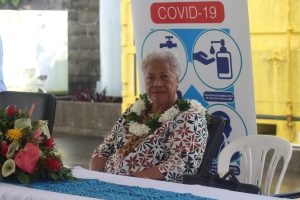The Pacific Island nation of Samoa isn’t commonly discussed on the global stage, but its recent three-month long political crisis caught international attention. It had all the spectacle of a good political thriller: accusations of treason, vote-rigging, foreign interference, Supreme Court rulings, and claims of a “bloodless coup” and a “feminist plot.”
The saga began on April 9, after early election results showed that Fiame Naomi Mata’afa was on track to challenge the incumbent Prime Minister Tuila’epa Sa’ilele Malielegaoi – one of the world’s longest-serving elected leaders – for his seat.
Preliminary results showed that Fiame’s Fa’atuatua i le Atua Samoa ua Tasi (FAST) party and Tuila’epa’s Human Rights Protection Party (HRPP) had claimed 25 seats each. After some political wrangling, the Samoan electoral commission determined that the constitutional provision requiring at least 10 percent of seats to be held by women had not been met, and so an additional female candidate was elected to the HRPP. The remaining independent member, Tuala losefo Ponifasio, then sided with FAST, hanging parliament.
Both parties took it to the Supreme Court, which ultimately overturned the electoral commission’s decision, cancelling the additional seat provided to the HRPP and paving the way for Fiame’s succession to the prime ministership.
After the court decision, Fiame, flanked by the chief justice, members of her party, and dozens of supporters arrived at parliament, expecting to be sworn in. But after being in office for 22 years, Tuila’epa was not prepared to step down without a fight. Instead, his supporters locked the door to parliament, barricading themselves in and the prime minister-elect out. Tuila’epa dissolved parliament and ordered new elections for May 21, 2021.
Seeing no other option, Fiame – who had previously served as a minister in Tuila’epa’s government – and her party erected a tent on the lawn outside parliament and held their own swearing-in ceremony. This effectively left Samoa with two governments and two prime ministers.
The political wrangling would continue for another two months, ending with the Court of Appeal declaring that the swearing-in ceremony on the front lawn was constitutional and binding, and that Fiame was, indeed, prime minister.
Fiame takes the helm at a challenging time in the nation’s history. Samoa’s economic situation is bleak, the impacts of climate change are starting to bite, disputes between China and Australia and their allies are reverberating across the region, and the bloc that would typically guide Samoa through the aforementioned issues, the Pacific Islands Forum (PIF), is in disarray. Fiame’s challenges, moving forward, are myriad.

































